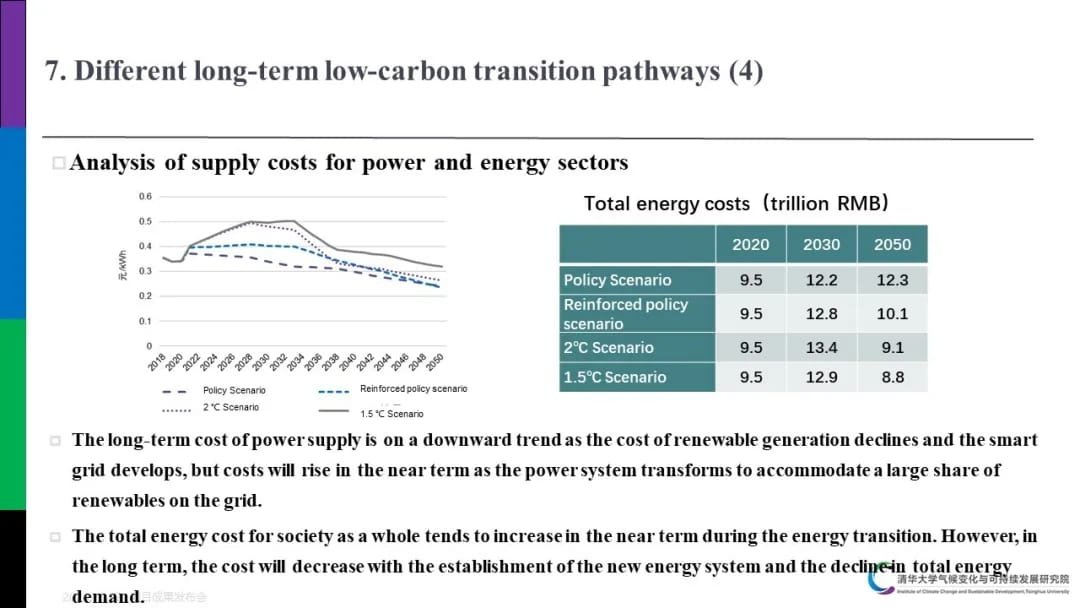The WSJ highlights the amount of money involved in making the world run on zero emissions energy. Important: this not the price tag to the society, but the prize to the winners of the battle over who produces the energy the world uses in the future. THREAD https://www.wsj.com/articles/the-115-trillion-price-tag-to-cut-global-emissions-11619375103?st=7w8wofmzz0kbqnc&reflink=article_copyURL_share">https://www.wsj.com/articles/...
Most studies find that the costs of a zero CO2 energy future are very similar to the costs of continuing to rely on unabated fossil fuels.
This Tsinghua study says China would spend 5% more money on energy in 2030, and almost 30% LESS in 2050, under the carbon neutrality pathway
This Tsinghua study says China would spend 5% more money on energy in 2030, and almost 30% LESS in 2050, under the carbon neutrality pathway
Read that again.
The zero-CO2 option requires more upfront investment, as wind, solar, nuclear etc. cost more to build but much less to operate than fossil fuels.
Given the uncertainty in these kinds of forecasts, the real message is: it& #39;s a coin toss, and anyway the difference won& #39;t be large.
Given the uncertainty in these kinds of forecasts, the real message is: it& #39;s a coin toss, and anyway the difference won& #39;t be large.
China& #39;s economy will at least double, maybe triple over the next 30 yrs so in any case the energy bill would fall dramatically in relation to incomes and the operating costs of businesses, whether the electricity price goes up or down 25% in real terms.
I think what doesn& #39;t compute for many people is: if the choice is between two ways of generating energy that cost the same, keep the society, industry and business running the same, and one wrecks the planet and the air and maybe ends our species wholesale, WHAT& #39;S THE CHOICE?
If we& #39;re still having a fight over this and endless summits and TV debates, it must be hard and expensive right?
It& #39;s not too hard to figure out what the rub is, but I& #39;ll tell you anyway just to be sure.
The difference in the costs of clean energy and fossil energy to the society might be 5, 10 or 20%, either way, in 2050. But the difference in the amount of money that fossil fuel interests make, and the power they have in the society, is very close to a 100%.
When I say fossil interests, that& #39;s not just eeevil corporates, but also miners& #39; unions, local and national governments of fossil fuel producing regions and so on.
So just in the case of China, that& #39;s RMB10 trillion / USD 1.5 trillion per year that goes either to one set of businesses, local economies and local governments, or to the other. People have been known to get into fights over lesser sums of dough.
The society as a whole will pay about RMB 10 trill for energy either way, so there& #39;s no price that needs to be paid to have a clean energy system, at most an upfront investment.
The price will be paid by businesses and regions that fail to make themselves relevant in the clean energy future and therefore miss out on that expenditure. And those who produce that energy will grab the prize of 10 tril, simple as that.

 Read on Twitter
Read on Twitter


